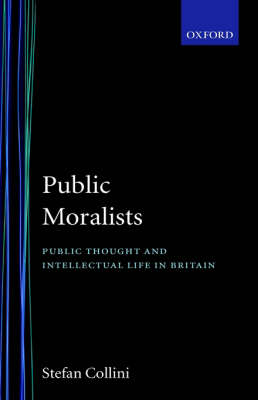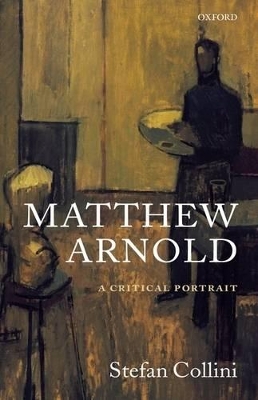Clarendon Paperbacks
2 total works
This imaginative and unusual book explores the moral sensibilities and cultural assumptions that were at the heart of political debate in Victorian and early twentieth-century Britain. It focuses on the role of intellectuals as public moralists, and suggests ways in which their more formal political theory rested upon habits of response and evaluation that were deeply embedded in wider social attitudes and aesthetic judgements. Stefan Collini examines the characteristic idioms and strategies of argument employed in periodical and polemical writing, and reconstructs the sense of identity and of relation to an audience exhibited by social critics from John Stuart Mill and Matthew Arnold to J. M. Keynes and F. R. Leavis. Dr Collini begins by situating the leading intellectuals in the social and political world of the Victorian governing classes. He explores fundamental values like 'altruism', 'character', and 'manliness', which are revealed as the animating dynamic of much of the political thought of the period.
The book assesses the impact of increasing academic specialization across a range of disciplines, and offers an illuminating analysis of the public voice of legal theorists like Maine and Dicey. Through a detailed study of J.S. Mill's posthumous reputation Dr Collini uncovers the process by which the genealogy of images of national cultural identity is established; and he concludes with a provocative exploration of the nationalist significance of what he calls 'the Whig interpretation of English literature'. Public Moralists is a subtle and illuminating study by a leading intellectual historian which will redirect debate about the distinctive development of modern English culture.
The book assesses the impact of increasing academic specialization across a range of disciplines, and offers an illuminating analysis of the public voice of legal theorists like Maine and Dicey. Through a detailed study of J.S. Mill's posthumous reputation Dr Collini uncovers the process by which the genealogy of images of national cultural identity is established; and he concludes with a provocative exploration of the nationalist significance of what he calls 'the Whig interpretation of English literature'. Public Moralists is a subtle and illuminating study by a leading intellectual historian which will redirect debate about the distinctive development of modern English culture.
Matthew Arnold (1822-88), the leading man-of-letters of the Victorian age, has been the decisive influence on modern thinking about literature and criticism and his work has become an inescapable cultural reference point today.
In this stylish and entertaining book Stefan Collini examines the whole range of Arnold's literary, social, and religious criticism as well as his poetry, placing them in the context of the major intellectual controversies of the nineteenth century. By attending to the distinctive power of Arnold's writing to charm, tease, persuade, and irritate, the book provides a brilliant characterization of the tone and temper of his mind.
This edition includes a substantial Afterword which reflects on Arnold's continuing polemical significance and his role in contemporary cultural debate.
In this stylish and entertaining book Stefan Collini examines the whole range of Arnold's literary, social, and religious criticism as well as his poetry, placing them in the context of the major intellectual controversies of the nineteenth century. By attending to the distinctive power of Arnold's writing to charm, tease, persuade, and irritate, the book provides a brilliant characterization of the tone and temper of his mind.
This edition includes a substantial Afterword which reflects on Arnold's continuing polemical significance and his role in contemporary cultural debate.

